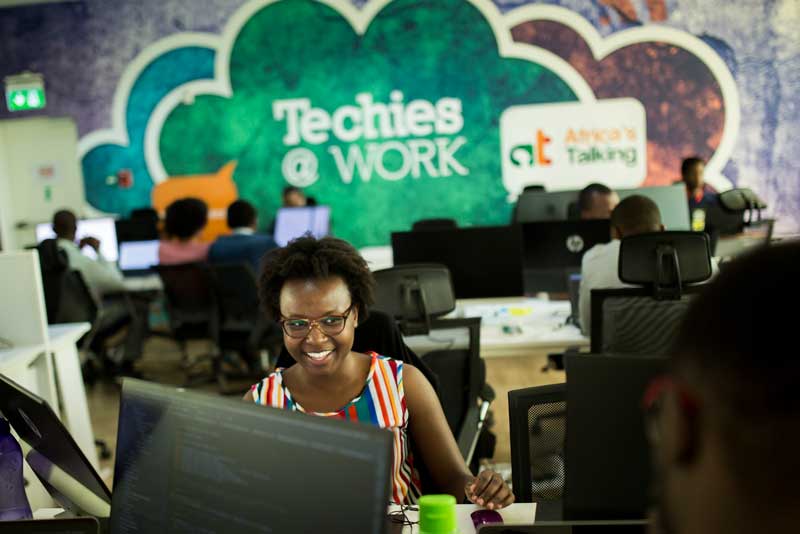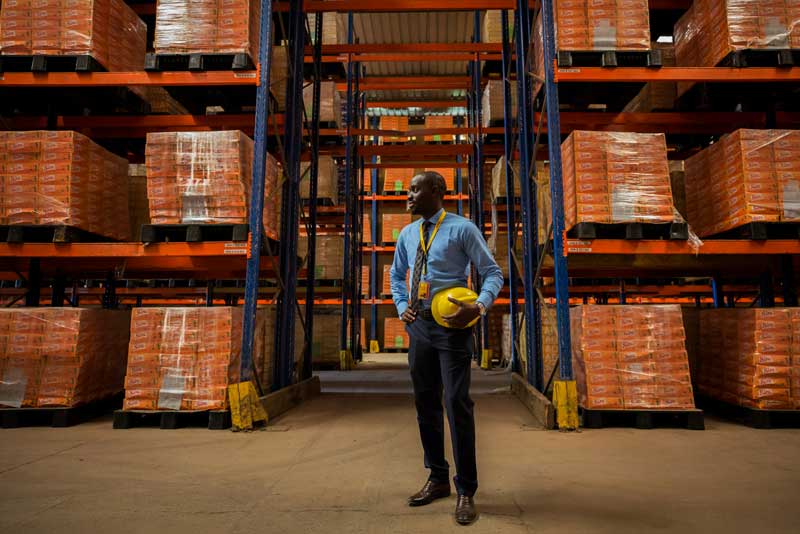By Sunita Rappai, IFC Communications
For Africa's Talking, a mobile-solutions start-up, integration is everything. The Kenya-based firm has developed a platform that makes it possible for companies launching apps to set up accounts and have instant access to multiple countries, mobile operators, and services.
But it wasn’t easy for the pioneering tech start-up to reach the 18 African markets in which it now operates. “Things are not the same in each country you go into, so you almost have to start from scratch in each market,” says Chief Operating Officer Bilha Ndirangu. “We definitely want to go [further] across the entire continent, but it takes a while.”
Ndirangu is among Africa’s business leaders attending this week’s Africa CEO Forum. The Kigali-based event, co-hosted by IFC, is the largest annual meeting of leaders from across Africa’s private sector. On the agenda: partnerships and solutions aimed at unlocking the continent’s economic potential. More than 1,800 African business leaders along with the presidents of the Democratic Republic of Congo, Ethiopia, Rwanda, and Togo are in attendance—as well as leading policy makers and investors.
The timing is important. Regional integration is one of the main themes of the forum because the landmark African Continental Free Trade Area (ACFTA) agreement is on the horizon. The agreement has already been ratified by 21 of the 22 signatory states. It aims to bring together all African countries—comprising 1.2 billion people and a combined GDP of over $3.4 trillion—under a single continental market for goods and services.
“With proper regional integration, I think we’ll begin to see the growth of pan-African businesses a lot faster and you’ll begin to see businesses that scale much faster,” says Ndirangu, noting that this will affect a variety of businesses, from huge multinational corporations to small start-ups. “What would definitely help is if we can see the free movement of labor, so you have the best people working on the best project regardless of what country they were born in.”
Opportunities, Not Without Challenges
More intra-African trade would lead to more diversification, improve productivity, and help attract private investment, says IFC’s Chief Executive Officer Philippe Le Houérou, who is also attending the forum. He emphasized that the ratification of the agreement is not a panacea—it must be accompanied by the necessary reforms to unlock trade and investment opportunities.

Africa has the lowest percentage of intra-regional trade in the world—just 20 percent. That’s dramatically different compared to Europe (70 percent), North America (55 percent), Asia (45 percent), and Latin America (35 percent). Studies estimate the fully implemented agreement would expand intra-African trade by between 14 percent to more than 52 percent if non-tariff barriers are also eliminated.
The continent also has significant room for adding value to the goods it sells globally. In 2017, 44 percent of all exports from sub-Saharan Africa and 34 percent from the Middle East and North Africa region were in raw materials, compared with 6 percent for East Asia and the Pacific, and 8 percent for Eastern Europe and Central Asia.
IFC’s investment in Africa has followed the course of the continent’s growth. In 2004, IFC invested about $160 million in the continent. Over the past decade, this figure has risen to over $3 billion annually.

Le Houérou said IFC’s intention is to more than triple this figure by 2030. “We looked at why we can’t invest more and found out that there is a ceiling because there aren’t bankable projects,” he said, as he urged governments to continue policy reforms to encourage investors and innovators.
Ndirangu, meanwhile, remains passionate about Africa’s potential. “It’s an exciting continent. I think about the number of young people, the innovation, the energy. Of course, there are challenges but when I think about the optimism that Africans face life with, it fills me with hope,” she says.
“If you ask me what my slogan is, I say ‘The future will be built in Africa’ and I truly believe that.”
Join the conversation: #IFCmarkets
Published in March 2019
